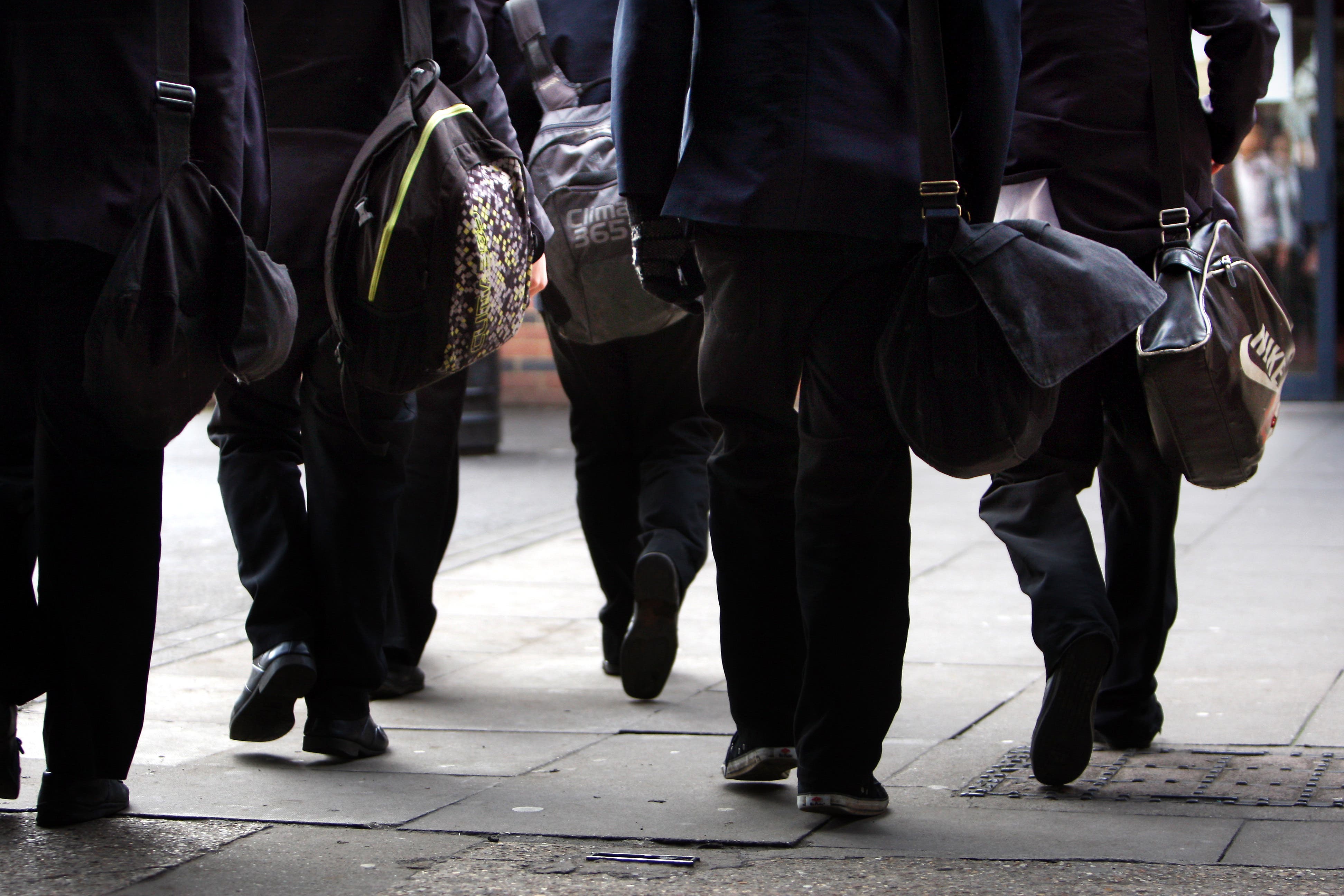
A "boy-positive" learning environment needs to be fostered in schools and a dedicated Minister for Men appointed to address gender disparities in education, a report says.
The paper by the Higher Education Policy Institute (Hepi), sponsored by Ulster University, argues that a dedicated strategy is crucial to boys’ underachievement at school, calling it "one of the most egregious issues" facing education and society.
The report warns of the potential societal consequences of male underachievement, suggesting a risk of "under-educated men veering towards the political extremes" if the issue remains unaddressed.
Hepi estimates that half a million young men have missed out on higher education opportunities in the past decade.
Co-authored by male inclusion adviser Mark Brooks, the report urges greater scrutiny of gender disparities within the educational workforce through Ofsted inspections and university access plans.
It emphasises the perceived benefit of more male teachers, suggesting their presence "normalises learning as a suitable activity for men” and can positively influence children lacking positive male role models at home.
The report also recommends the Government draw parallels from successful initiatives to increase female representation in STEM fields, applying similar strategies to encourage men into teaching, care, and nursing professions where they are currently underrepresented.
It added that the majority of universities still do not formally recognise men as a disadvantaged group in respect to university entry.

In 2024/25, around 44,000 fewer young male residents of the UK accepted a place at a UK higher education institution than women.
That is according to data which looks at Ucas applicants aged 19 and under.
If young women and young men went to higher education at the same rate, there would actually be more male students, as more boys than girls are born each year, according to the report.
The gap between what currently happens and full equity stands at “around 55,000 missing men each year” – which the think tank said equates to around half a million missing men over the past decade.
The Government could appoint a junior “Minister for Men and Boys” or a named minister specifically tasked with addressing the educational underachievement of male pupils and students, the report said.
The paper has called for grassroots initiatives aimed at raising the standard of boys’ education to be evaluated and expanded – such as “Lads Need Dads”, which runs a reading mentoring scheme in schools.
It added: “It is worth noting that some specific changes aimed at a boy-positive environment could be cheap and straightforward to deliver – such as marking International Men’s Day.”
In April 2024, just months before the election, the Commons Education Select Committee launched an inquiry into why boys consistently underperform compared with girls in educational attainment.
It came after a report by the All-Party Parliamentary Group (APPG) on Issues Affecting Men and Boys called on schools to tell parents what their child was being taught about “toxic masculinity”.
Mary Curnock Cook, a former Ucas chief executive, highlighted figures in the think tank’s report which suggested that around a quarter of parents think that boys in their child’s school are made to feel ashamed of being male.
In her foreword to the Hepi report, Ms Curnock Cook wrote that ignoring the “worsening gulf” between boys and girls in education is “no longer an option”.
Boys were growing up with few male teachers and their doctors, vets and lawyers were also increasingly likely to be female, she wrote.
“Is it any wonder they look to social media for their icons and heroes and are drawn too often to highly toxic versions of masculinity?”
Nick Hillman, director of the Hepi and co-author of the report, said: “Education holds the key to unlocking more equal opportunities across our society but boys and men currently fall behind girls and women at each stage of education, from infant class to PhDs.
“The resolute focus that is generally put on educational differences by class and ethnicity is generally missing when it comes to the sex of learners.
“That must change if we are to tackle one of the most egregious issues affecting education as well as society.
“We need a cross-government strategy to address the problem. It wasn’t until 2022 that we had a dedicated health strategy for women and we are still waiting for a dedicated education strategy for men.
“For any new strategy to be truly effective, it will need clear ministerial oversight, including – if necessary – a new Minister for Men and Boys to oversee it.”
Schools should be ‘boy positive’ to tackle male underachievement – report
One million youngsters are not in education, or work – is it their fault or ours?
School inspector sacked for brushing water off child’s head wins legal battle
Families see school as ‘optional’ and fines are not reversing post-Covid trend
Boys aged 14-17 main target of ‘unimaginably cruel’ sextortion
Transgender patients ‘not called to NHS screenings’ due to failure to record sex







